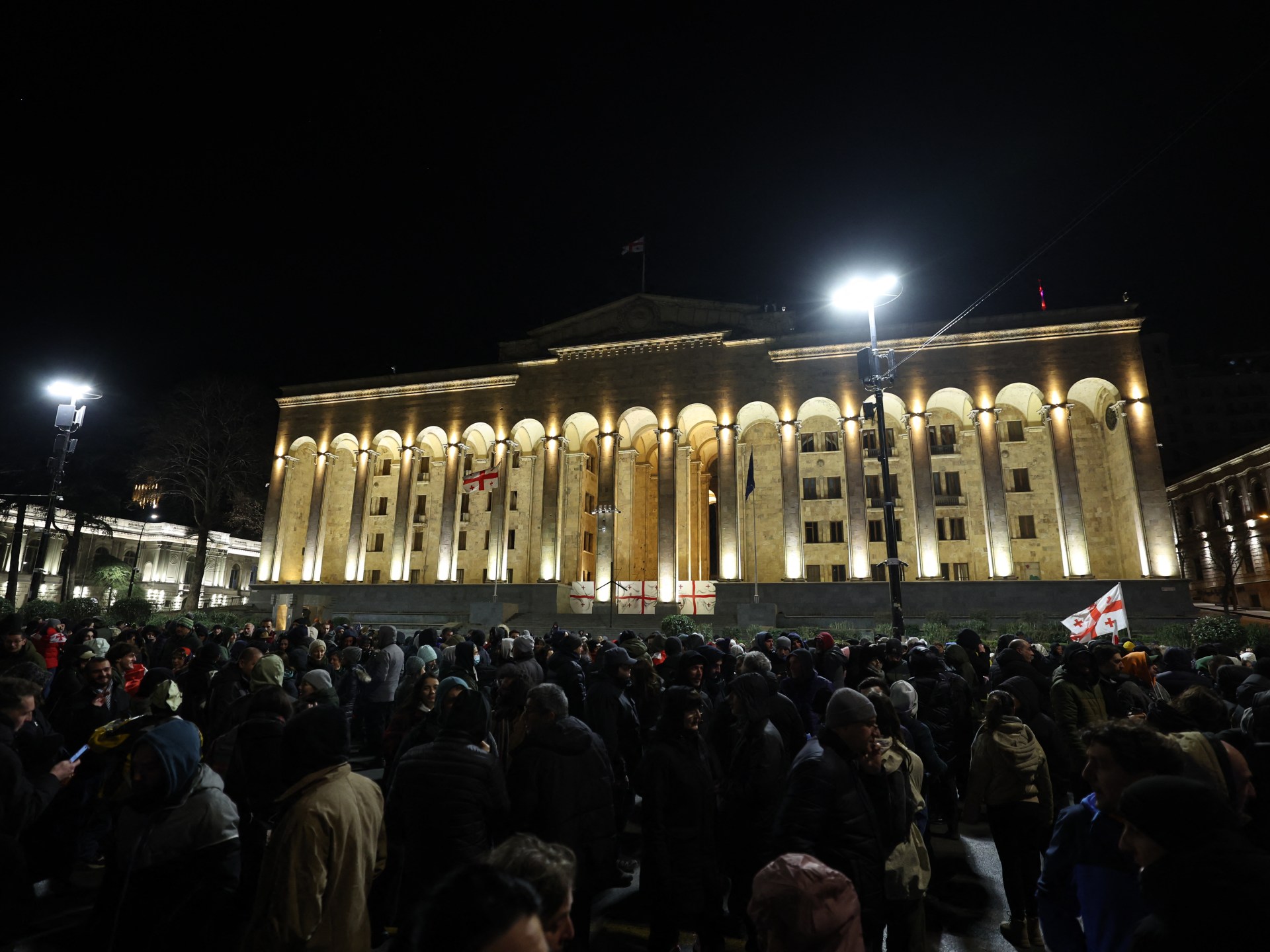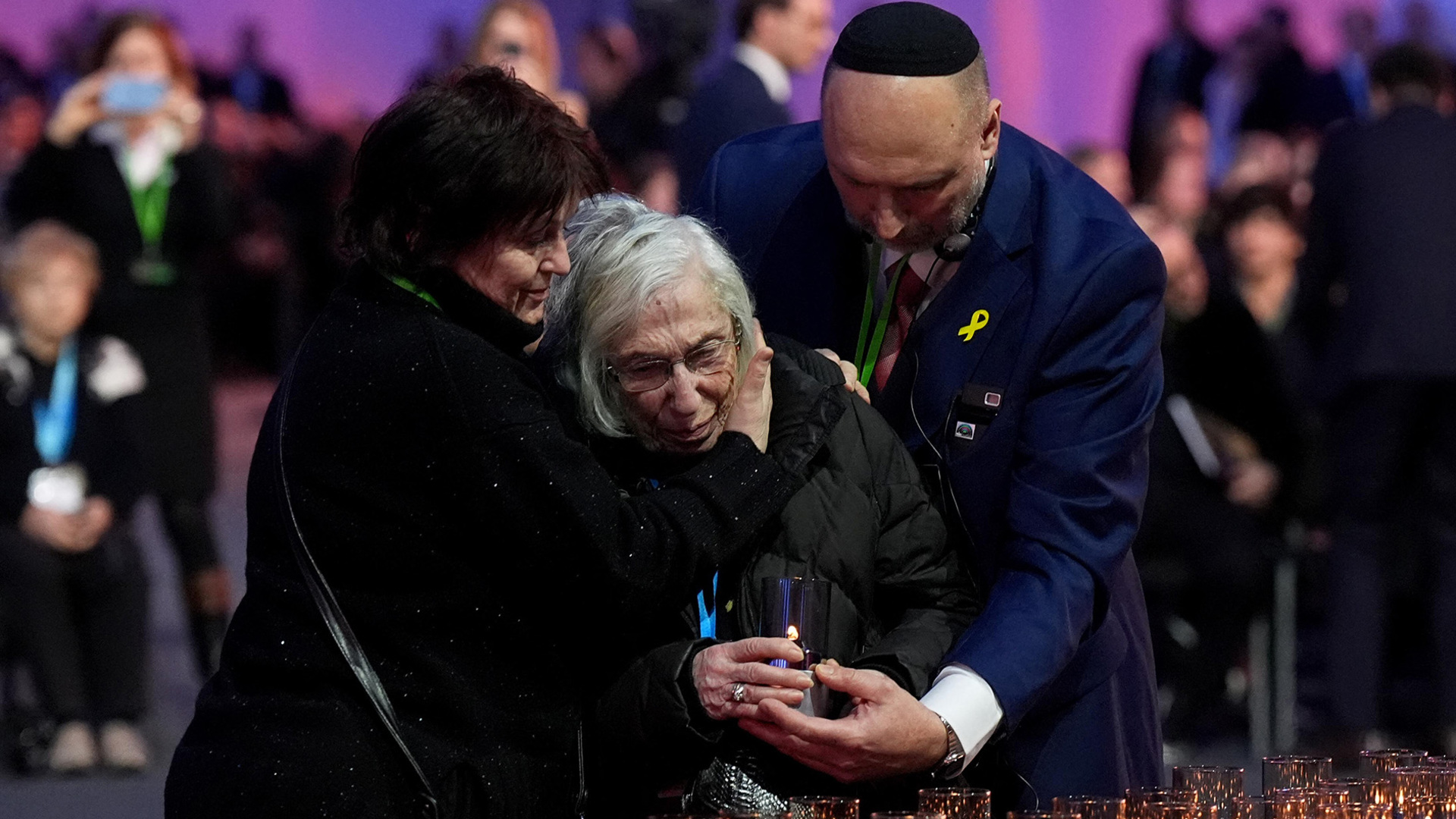Tbilisi, Georgia – Tensions flared once again in Georgia’s capital as police cracked down on pro-democracy demonstrations, leading to the arrest of several opposition figures, including prominent leaders Nika Melia and former Tbilisi mayor Gigi Ugulava. The large-scale protest, which reignited on Sunday night, is part of ongoing mass demonstrations against the ruling Georgian Dream Party, which opposition groups accuse of voter fraud and authoritarian governance.
Since November 2024, Georgians have been protesting daily against the government, though demonstrations had subsided in intensity at the beginning of the year. The latest rally, held on the northern edge of Tbilisi, saw thousands of demonstrators blocking a major highway leading out of the city. Police responded with force, detaining multiple protesters. Reports from the independent news outlet TV Pirveli aired footage showing authorities brutally beating detained individuals, further escalating tensions.
Nika Melia, leader of the liberal pro-European Akhali party, and Gigi Ugulava, a key opposition figure, were taken into custody. According to Melia’s lawyer, he was arrested on an administrative offense charge and later released after signing a commitment to appear in court.
Former Prime Minister and opposition leader Giorgi Gakharia condemned the crackdown, directly blaming billionaire and Georgian Dream founder Bidzina Ivanishvili—who holds no official position—accusing him of orchestrating “full-scale mass repressions” and deploying masked forces to punish peaceful demonstrators.
Later in the night, protesters regrouped outside the Georgian Parliament in central Tbilisi, continuing their call for democratic reforms and closer ties with the European Union. Many demonstrators are enraged over the government’s decision to delay EU accession talks until 2028, despite Georgia officially enshrining its EU membership goal in its constitution in 2017.
European Union foreign policy chief Kaja Kallas strongly condemned the Georgian government’s actions, calling the “brutal crackdown on peaceful protesters, journalists, and politicians” unacceptable. She further stated that “Georgia falls short of any expectation from a candidate country,” reaffirming the EU’s support for the Georgian people in their fight for democracy.
Last week, Brussels retaliated against the Georgian government’s increasing repression by suspending visa-free travel to the EU for Georgian diplomats and officials. This move was justified by the adoption of repressive laws and violent crackdowns on protesters, independent media, and opposition politicians.
The Ministry of Internal Affairs reported that during the initial wave of protests in November, riot police deployed tear gas and water cannons to disperse demonstrators, resulting in over 400 arrests. Human rights activists have decried what they describe as a systematic campaign of intimidation against protesters.
With the political crisis deepening and international condemnation mounting, Georgia stands at a crossroads, as its people continue their struggle for democratic freedoms and a European future.


